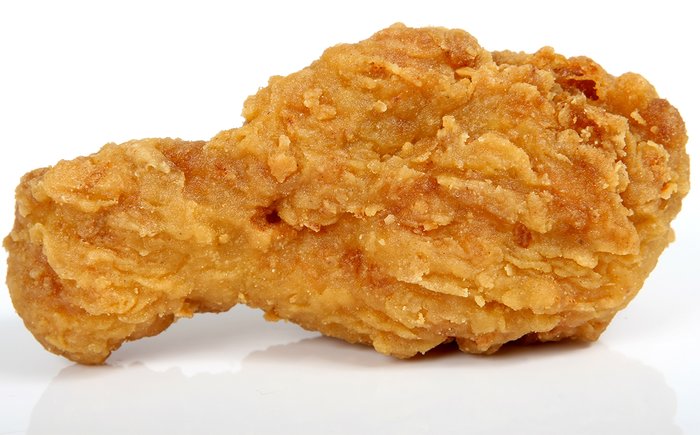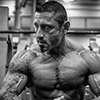Condition isn't everything. But when it comes to competitive bodybuilding, it is usually those with the dedication and discipline to diet down to an extremely lean condition who win.
Look inside just about any place that has an assortment of barbells, dumbbells, and a few machines and cables. You're bound to spot at least a few beefy dudes with sloping traps, wide backs, dense pecs, and pumped arms. But most of these well-developed muscles are covered with layers of body fat. That is, unless one of those dudes is an elite bodybuilder preparing for a contest.
Whether it's a local show or the Mr. Olympia, competitors succeed by showcasing every inch of their finely chiseled physiques. That's what these contests are all about.
But if you've ever been to a contest, you know that not every competitor shows up in that perfect ripped and shredded condition. So why do so many bodybuilders work so hard to develop their physiques, just to show up at contests in such obviously poor condition?
Good Lord, I'm a Junk-Food Junkie
The most common, reason is simple: Lots of bodybuilders—even dedicated professionals—have a very hard time sticking to their diets. Not that any of them will say so. It's hard to admit you can't handle the hunger and deprivation required to achieve single-digit body fat.
Some people can't handle the late-night cravings that inevitably come with a contest diet. The clock strikes 1 a.m., and they're down in the kitchen hitting the cookies, peanut butter, ice cream, or candy. Others will post photos on Instagram of their super-clean meals of grilled cod and asparagus, but not of the supersized burger combos and pizzas they devour in between.

People have even started to justify these cheat meals as being necessary to avoid looking or feeling "flat." News flash, people: When you're in a caloric deficit and losing fat, you're not supposed to look and feel as big and full as you do offseason!
All Chicken Dinners Are the Same, Right?
Despite all the available information, many pros and amateurs do not have a clue how to lose body fat correctly.
They might understand that you need to eat lean meats like chicken, but not that they shouldn't choose KFC Extra Crispy rather than a grilled, skinless breast. Or they'll avoid fats, but eat far more calories from other foods, forgetting that fat loss occurs when you take in fewer calories that you burn.

In the same way, some competitors don't understand the role cardio plays in losing body fat. Or if they do understand it, they think a cardio workout means taking a leisurely stroll around the block, never once breathing heavy or breaking a sweat.
To be fair, I don't see this kind of ignorance extend beyond the local contest level: People usually don't make it into higher levels until they learn how to lean out, or hire a coach to show them the way.
Do You See What I See?
And then there are those stubborn or misguided individuals who don't get in shape because they think they're lean enough as is.
A competitor at my gym once told me he had competed the weekend before. He was clearly up to 40 pounds over a good competitive weight—he had a muffin top of chub hanging over his waistband. But he proudly explained that he had seen a vein in one of his traps, which had as much as told him he was ready to get on stage.
As he later admitted, he placed last in his class. When I asked him why he didn't do better, he said the judges told him he was too "big." "You weren't too big," I told him as kindly as possible. "You were too fat."
People afflicted with a condition called body dysmorphic disorder (BDD) look at their body and obsess about their imagined flaws. Others look at their not-yet-ready-for-prime-time body and see nothing but perfection. I can't count the number of pros I've talked to who've been outraged at low placings, but refuse to acknowledge that they're just not in any kind of good shape.
In many cases, these people's delusions are reinforced by well-meaning friends or family members who assure them they're looking ripped to the bone—even though these well-wishers can't even see the person's abs.
Some Medications Lead to Weight Gain
Then there are people with medical issues that prevent them from losing body fat, such as undiagnosed or untreated hypothyroidism, Cushing syndrome, and polycystic ovarian syndrome. And when these issues are being treated, the medications themselves may cause weight gain.

Everything from depression and diabetes meds to migraine pills can lead to increased body fat. Many people suffering from depression avoid seeking medical help precisely because antidepressants are so notorious for causing unwanted weight gain.
It is possible to find alternative medicines that treat medical conditions without causing weight gain. But the priority must always be on treating the condition. Bodybuilding is important, but not that important.
Keep It Together Year-Round
Another obstacle to top condition is when bodybuilders—amateur or pro—put on too much body fat offseason. When you're chasing bigger numbers on the scale and in your gym lifts, it's easy to justify eating far too much at far too many meals. And it's easy to convince yourself that the new weight is mostly muscle, with just a trace of fat.
Reality comes crashing down when you realize too late that you're carrying much more body fat than you thought. You may have started your diet at 240 pounds, figuring you'd step on that stage shredded at 220. But after one look in the mirror at 225, it's painfully obvious that you have a hell of a lot more than 5 pounds to go!
The key to good contest condition is staying leaner year-round. If you never get terribly out of shape, you'll have a much more accurate idea of how much muscle versus fat you're carrying.
More important, you won't need those marathon 20-plus-week diets or have to jump into zero-carb diets or hours of daily cardio. Fat loss must be coaxed away gradually, not forced off in a desperate race to the finish line.
You Must Be Huge and Full to Win! (Not)
I've also seen competitors intentionally sacrifice condition to stay "big and full" for the stage. Sometimes this stems from arrogance; someone thinking his or her mass and shape are so superior that showing up even at 80 percent of top condition will be enough to win. This is a misguided strategy that rarely pays off.

Six-time Mr. Olympia Dorian Yates has been highly critical of modern bodybuilding professionals. This newest crop of pros, he says, rarely bring superb condition, because they're so intent on staying big and full.
Yates went way lean for each and every one of his Olympia victories, because he insisted on displaying the best condition possible. "I wanted the judges to be able to see my kidneys pumping," he deadpanned.
Some attribute heavy reliance on growth hormone and insulin by most modern pros for the decline in the kind of crisp, dry condition more common in the '80s and '90s. Bodybuilders today are bigger, there is no doubt, he says. But he adds that it's highly debatable whether they are any better. He's right: If it was all about being huge and full, Big Ramy would already have a couple Sandow trophies back home in Kuwait.
Last-Minute Voodoo Tricks
Maybe the most frustrating and heartbreaking cause of poor condition is when pros grasp for last-minute tricks and manipulations. You name it: Water, sodium, carbs, and other dangerous changes have been proclaimed every now and then as surefire ways to achieve definition and fullness in the final few days.
Thanks to social media, it's now easy to see these would-be transformations take place in real time. An athlete will post up progress pics every day for weeks and weeks. A day or two out from the contest, and the person looks absolutely amazing. Their condition is on point, and their chances of winning look damn good.
Then you see shots from the show, and you wonder what the hell happened. They may have looked great in the days and weeks before the show. But onstage, they look flat, bloated, or watery.
Whatever concoction or routine they or their coach put in place ended up killing that spectacular look—along with their hopes of winning. In the old pre-internet days, you would always hear guys say, "Bro, you should have seen me last week." Now, we can watch in amazement as competitor after competitor blows their condition—all because they relied on last-minute tricks that backfire far more often than they succeed.
The Bottom Line
There are many reasons why some bodybuilders don't display the condition they should on contest day. The main thing is to learn how to avoid them. If you have made any of these mistakes yourself, take comfort in knowing that you're in good company!

